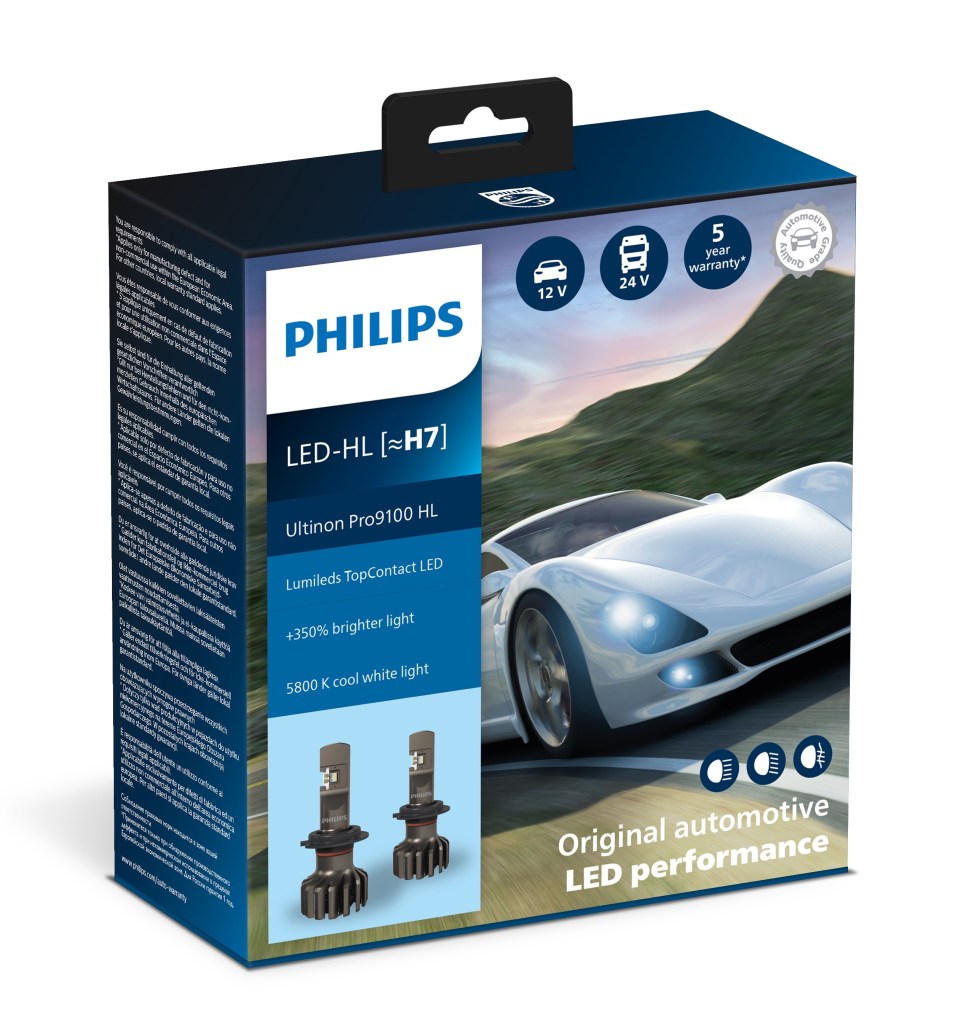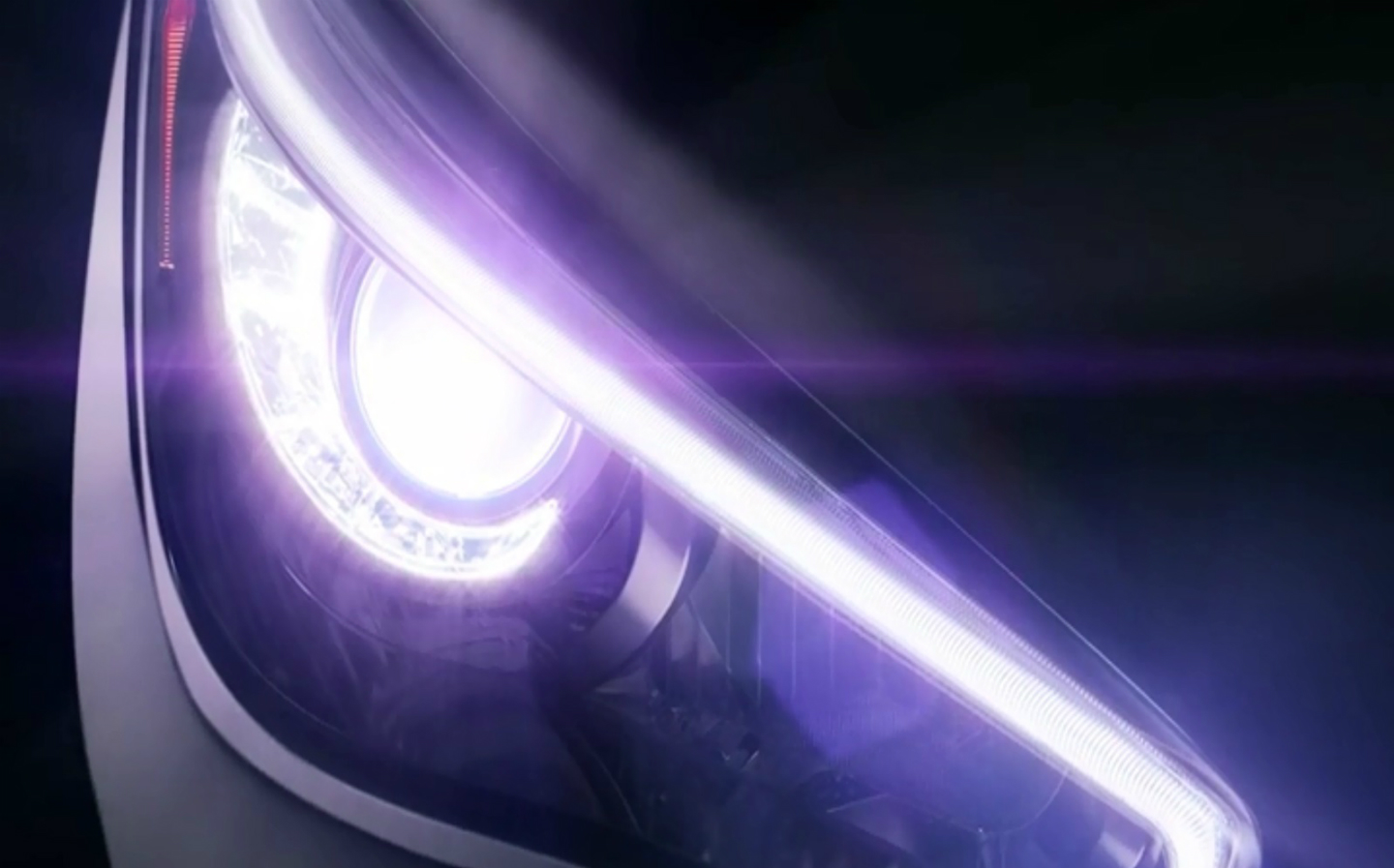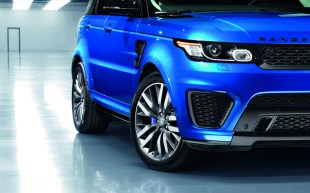Are LED headlight bulbs for cars legal?
Bright idea or dazzlingly dumb?
One major complaint often heard from motorists is about LED headlights and the blinding glare they can cause to oncoming drivers.
Many new cars are now fitted with LED headlights as standard, and the headlights in those cars are specifically designed not to dazzle other road users; while they may look brighter to oncoming drivers, they’re designed within legal parameters and won’t cause any more glare than a well-fitted halogen headlight.
Also on the market, however, are aftermarket LED headlamp bulbs, and while fitting your car with some extra illumination sounds tempting (especially in the depths of the dark winter months), those may not be such a bright idea.
How do LED headlights work?
The majority of cars on our roads use halogen headlight bulbs. Halogen bulbs work by passing an electrical current through a filament of tungsten surrounded by halogen gas which then emits light and heat.
Another type is the xenon or High Intensity Discharge (HID) bulb that dispenses with the filament and uses the electrical current to heat xenon gas, which then produces light.
Light Emitting Diode (LED) headlights work in a totally different way by passing an electrical current through a semiconductor that then emits photons to produce a clear, bright light illuminating the road ahead. they use far less energy than halogen or HID bulbs making them a lot more efficient.
Generally LED headlights are sealed units, which means that motorists can’t replace burnt-out bulbs themselves, but they last much longer so if they’ve been manufactured well they should last for the life of the car, at least.
The technology in automotive applications is still relatively young so it remains to be seen how LED headlights will fare long-term, but one major downside is that if something does goes wrong with an LED headlight unit, it could prove eye-wateringly expensive to replace.
Aftermarket LED headlight bulbs, on the other hand, come in the same sizes as halogen bulbs and so can be used to replace traditional bulbs, potentially offering much better illumination. They’re unlikely to be as sophisticated as factory-fitted LED headlight units and may not be as effective, though.
And there’s a much bigger problem for drivers to consider before fitting them to their car.
What’s the problem with aftermarket LED headlight bulbs?
A headlight unit uses a reflector or a projector to focus the light that their bulbs or LEDs produce.
Halogen headlight bulbs are omnidirectional meaning that, without the correct reflector, their light is widely dispersed and they won’t effectively illuminate the road ahead.
LEDs are not omnidirectional, meaning that they require a lens to focus the light being produced.
What this means is that, if an aftermarket — or “retrofit” — LED bulb is used in a headlight unit that wasn’t designed for LED bulbs, the light will not only be much brighter than a standard halogen bulb, but will likely be glaring to other drivers and possibly won’t be very effective from an illumination point of view.
There’s also a chance (the same as with a halogen bulbs) that an aftermarket LED bulb may not be fitted correctly and that the level of the beam may not be set correctly, further exacerbating the problem of dazzling other drivers.
All of that said, none of these things are the biggest issue when it comes to aftermarket LED headlight bulbs…
Are aftermarket LED headlight bulbs legal?
No, they’re totally illegal in the UK and other markets for a wide variety of reasons, not least their aforementioned problems.
The Road Vehicles Lighting Regulations 1989 states that all headlight bulbs must carry either a European E mark or a British Standards mark to ensure their quality.
At present, no technical legislation exists surrounding the use of LED bulbs in headlamp units designed for halogen ones, which means that aftermarket LED bulbs cannot receive a European E mark, or a British Standards mark, and so cannot be certified for road use in the UK.
Will a car with aftermarket LED headlight bulbs fail an MOT?
Yes. In 2021, the MOT inspection manual was updated to include the wording:
“Existing halogen headlamp units should not be converted to be used with high intensity discharge (HID) or light emitting diode (LED) bulbs. If such a conversion has been done, you must fail the headlamp.”
This update only makes reference to headlights, so drivers who may have replaced other bulbs on their cars with LED equivalents are not affected by it.
For a while, this was a legal grey area. MOT testers were required to test LED and HID headlight units to ensure “mandatory levelling and cleaning devices” were working; cars with aftermarket LED headlight bulbs could be exempt from that requirement given that they may not have been originally fitted with those levelling devices.
While aftermarket LED headlight bulbs were still illegal, providing the beam pattern and colour of the light (white or white with a slight blue or yellow tint) were correct, there was no particular reason at the time that an aftermarket LED bulb would fail an MOT, something that has been changed.
So, to be clear, retrofitted LED bulbs will currently result in an MOT fail.
Why are aftermarket LED bulbs still on sale?
Because drivers are unclear on their legality and still willing to buy them, based on promises of superior illumination of the road.
One example that recently came to our attention concerned the new Philips Ultinon Pro9100 aftermarket LED bulb, which promises 350% greater illumination than the legal requirement for halogen bulbs.
The product packaging showing the bulb being used in a road car, and the bumf saying things like, “Their optimal light spectrum makes road signs more visible,” and “The perfect positioning of the LED chips in Philips Ultinon Pro9100 bulbs delivers light exactly where drivers need it, on the road without dazzling oncoming vehicles.”

However, buried down at the bottom of the press release from the bulb retailer it says:
“The Philips Ultinon Pro9100 LED retrofit bulbs are non-ECE homologated for public roads and should be used off-road only. Drivers must comply with applicable local legal requirements.”
Regardless of the fact that aftermarket LED headlight bulbs are not legal for use on the road in the UK, motorists are still using them, companies are still supplying them and drivers without them are still suffering as a result of the dangerous levels of glare they can often produce.
Related articles
- After reading about the legality of LED headlight bulbs, you might want to check out Ford’s lighting tech that “shows the car the way to go”
- Here are all the Car Clinic articles
- You might also like to read about how to claim for pothole damage to your car’s suspension, wheels and tyres
Latest articles
- Should I buy a diesel car in 2025?
- F1 2025 calendar and race reports: The new Formula One season as it happens
- Zeekr 7X AWD 2025 review: A fast, spacious and high tech premium SUV — but someone call the chassis chief
- Denza Z9GT 2025 review: Flawed but sleek 1,062bhp shooting brake from BYD’s luxury arm
- Extended test: 2024 Renault Scenic E-Tech review
- Best-selling cars 2025: The UK’s ten most popular models of the year so far
- Audi A6 Avant 2025 review: Trusty executive estate ticks expected boxes, and there’s still a diesel option
- Keir Starmer eases pressure on carmakers to sell EVs in response to ‘global economic headwinds’
- Ferrari 12Cilindri Spider review: Heady blend of traditional and futuristic becomes even more intoxicating after lid is removed













